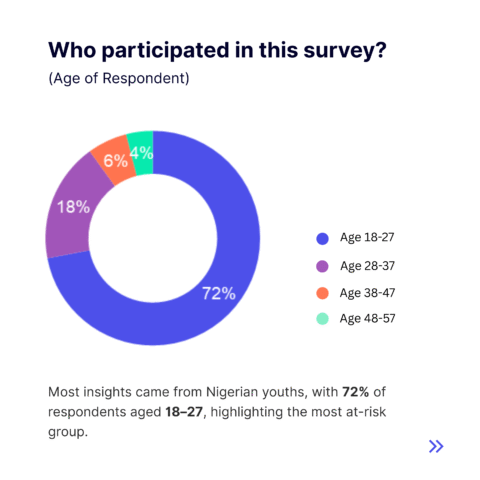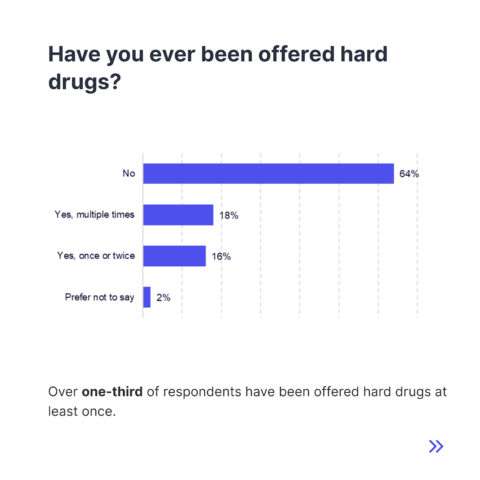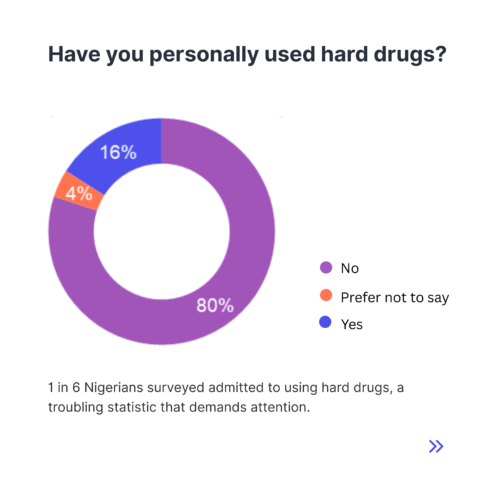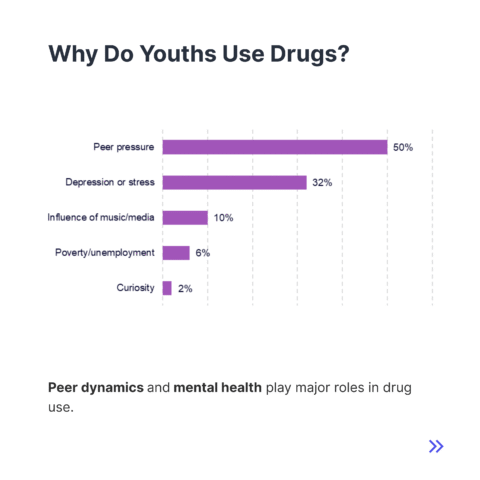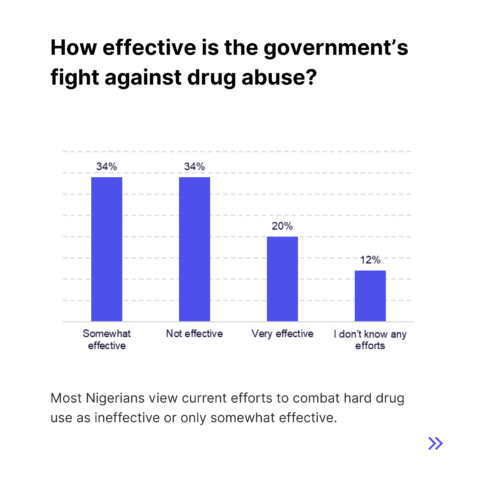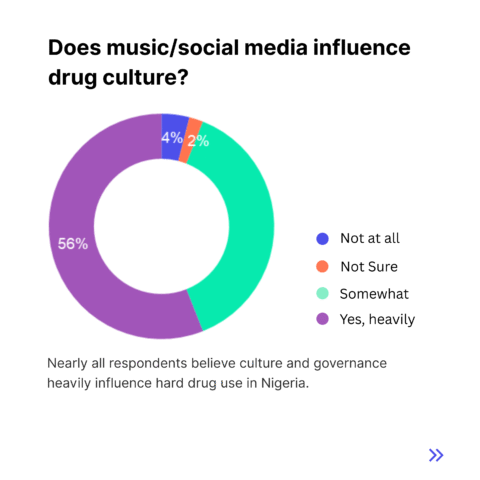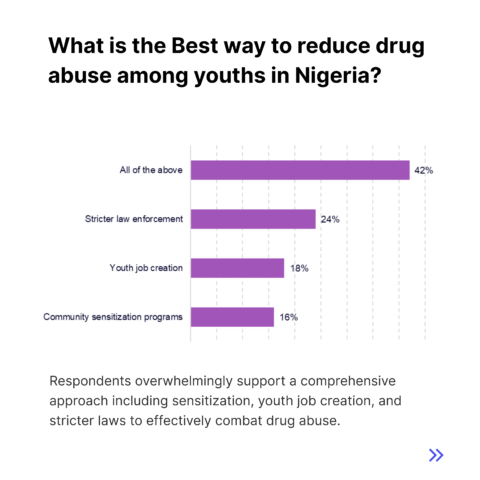
HARD DRUG USE AMONG NIGERIAN YOUTHS

Sep 14, 2023
HEALTHCAREtornado tech black
Introduction In recent years, the conversation around drug abuse in Nigeria has grown more urgent, and more complex. What was once whispered about in the corners of society has now become a full-blown public health concern, especially among young people. From prescription drug misuse to the rise of recreational narcotics, […]
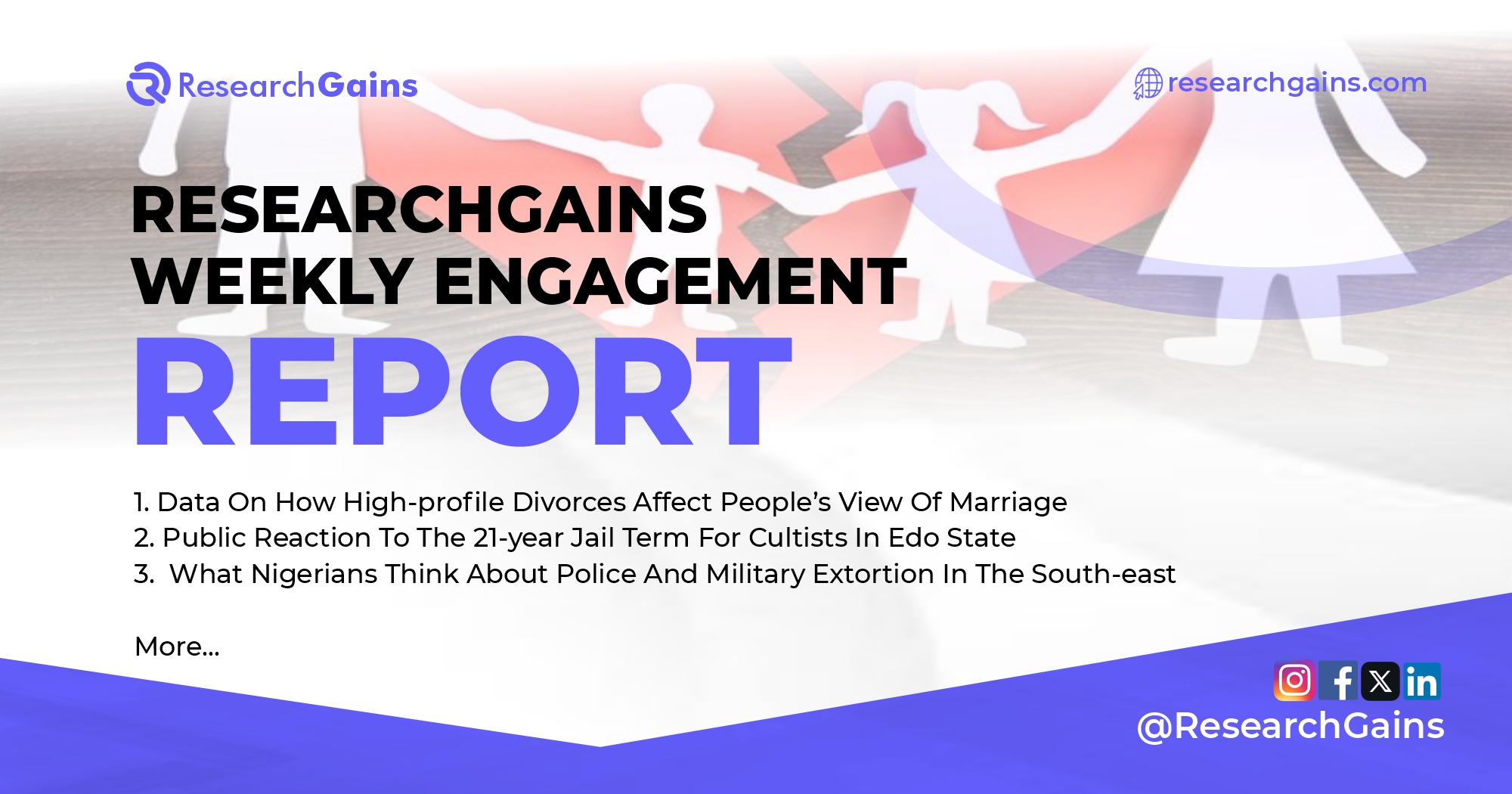
BALOGUN Babatunde Mar 31, 2025
AGRICULTUREresearchgains weekly report – Week 4 2025
Between January 28 and February 2, 2025, we ran several polls on Twitter, Instagram, and Facebook. These polls focused on trending topics in Nigeria, including politics, entertainment, and social issues. In total, we analyzed 15 polls with thousands of votes from Nigerians. This week’s topics included the divorce between 2Face […]
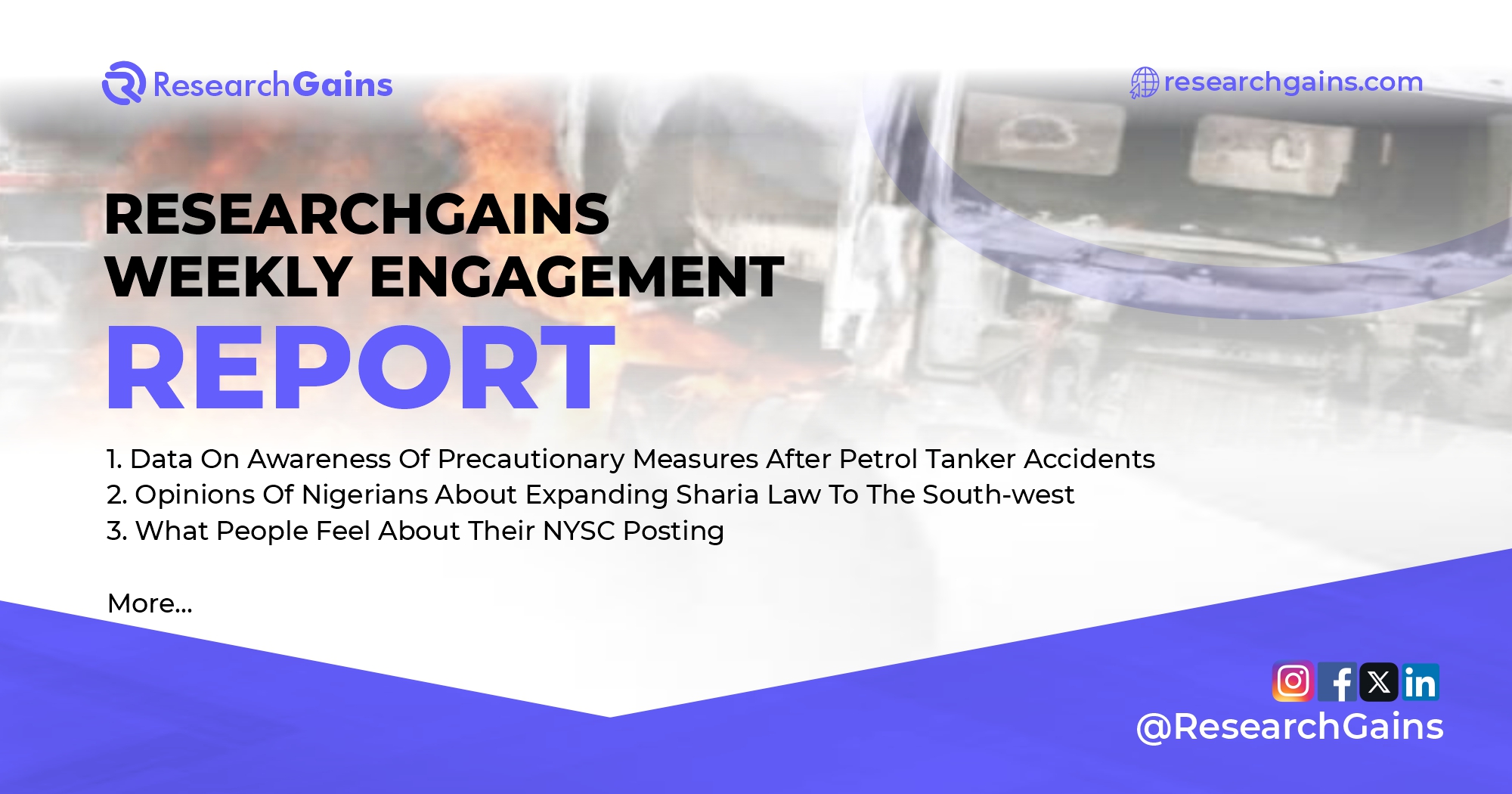
Mar 31, 2025
MANUFACTURINGresearchgains weekly report – Week 3 2025
RESEARCHGAINS WEEKLY POLL REPORT (JANUARY 20 – JANUARY 26, 2025) Every week, ResearchGains conducts polls across X, Instagram, and Facebook to gather Nigerians’ opinions on politics, entertainment, and social issues. In the third week of January 2025, we analyzed data from five polls, turning public concerns into valuable insights for […]
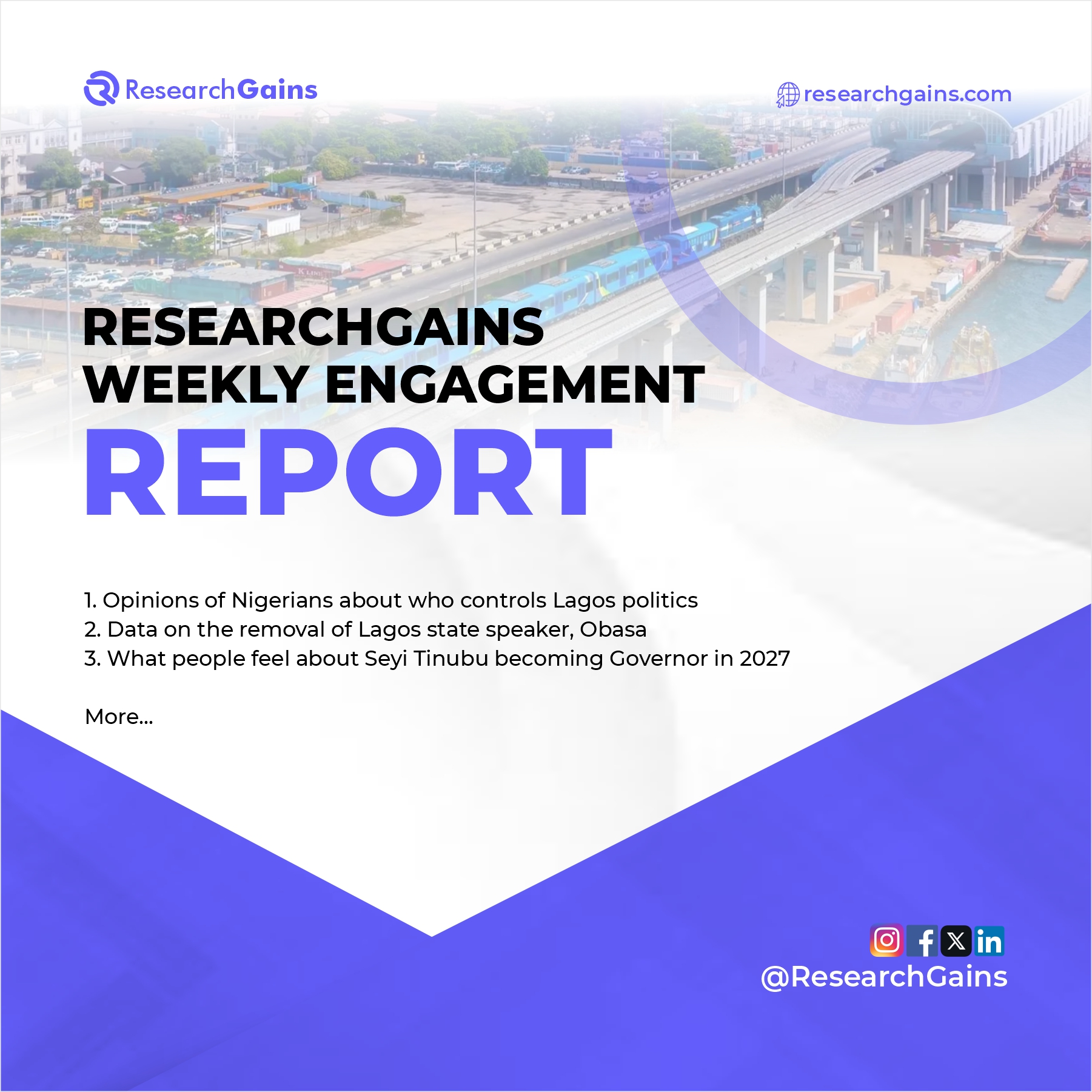
Mar 31, 2025
POLITICSresearchgains weekly report – Week 2 2025
RESEARCHGAINS WEEKLY POLL REPORT (13TH TO 17TH OF JANUARY 2025) Every week, ResearchGains gathers data on what Nigerians think about trending political and social issues. From January 13th to January 17th, 2025, we conducted eight polls across X, Instagram, WhatsApp, and Facebook, asking Nigerians to share their opinions. This week’s […]
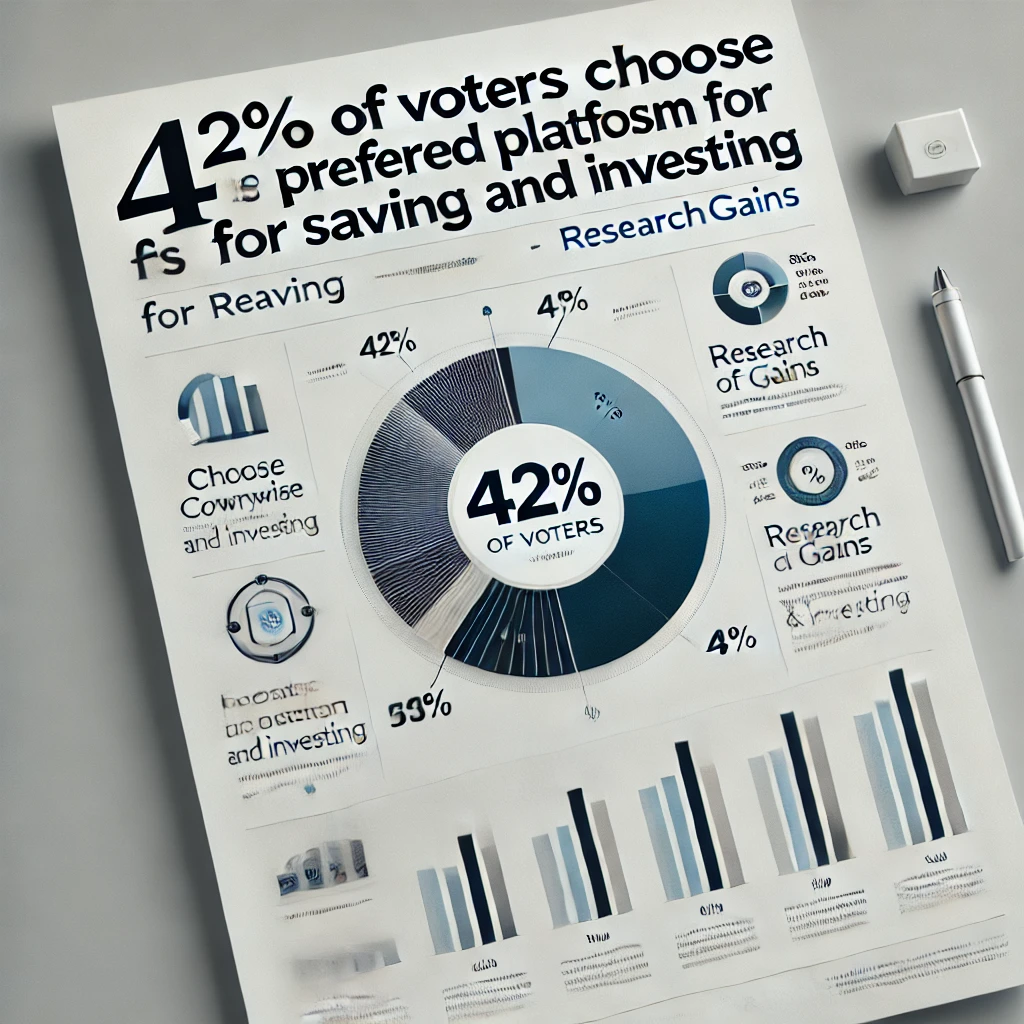
Jan 30, 2025
FINANCE42% of Voters Choose Cowrywise as Their Preferred Platform for Saving and Investing – Researchgains
INTRODUCTION In the first week of the year 2025, various polls were carried out in different social media platform including Twitter, Instagram and Facebook. The polls included opinions of the public on different topics trending across Nigeria. A total of 6 datasets generated from the polls were analyzed to gain […]

BALOGUN Babatunde Sep 12, 2023
EDUCATIONresearchgains vs Googleform
Google Form and ResearchGains are both valuable tools for collecting data, but they have distinct features and use cases. Let’s delve into their similarities and differences in more detail: Similarities 1. Form/Survey Creation: Both Google Form and ResearchGains allow users to create forms and surveys. This makes them versatile for […]

BALOGUN Babatunde Jul 13, 2023
EDUCATIONThe Impact of Poor Data Quality Assurance
Introduction In today’s data-driven world, businesses rely heavily on accurate information to make informed decisions, gain a competitive edge, and drive growth. However, one crucial aspect often overlooked is data quality assurance. Inadequate data quality assurance can have significant consequences for both businesses and individuals. In this article, we will […]

BALOGUN Babatunde Nov 28, 2022
POLITICSpost1
I hope the hopes of researchers are renewed in this Era. It’s not nothing new in Nigeria, excluding Researchers out of the picture when making policies and decisions that are vital to the Economy. Nigeria has been known as one of Africa’s leading economies and a hub of technological innovation. […]
